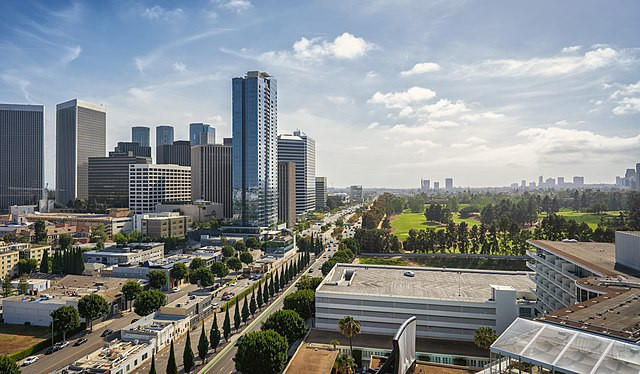As the United States heads into one of its busiest travel weekends, a major hotel strike has gained momentum, drawing thousands of workers from coast to coast into the labor dispute. On Labor Day, the strike expanded significantly with approximately 200 hotel workers in Baltimore joining the walkout, intensifying an already large-scale labor action that now includes more than 10,200 workers across 25 cities.
The strike, led by the UNITE HERE union, targets three major hotel chains: Hilton, Hyatt, and Marriott. Workers are striking not only for better wages but also for improvements in working conditions and a reversal of pandemic-era service cuts. The union's demands include the restoration of daily room cleaning services and other amenities that were reduced during the COVID-19 pandemic.
"I walked out today because we just cannot keep working paycheck to paycheck, not able to pay our bills," Jerome Roberts, a dishwasher at Hilton Baltimore Inner Harbor, said. "Going on strike is hard, but not nearly as hard as trying to get by on what we are getting paid. We told the bosses in our negotiations how much we are struggling right now but they didn't care. We are on strike to make them pay."
The strike, which began early Sunday morning, affected hotels from Boston to the West Coast, including San Diego and San Francisco, and even extended to Hawaii, with hotels in Honolulu and Kauai being impacted. The labor action is causing significant disruptions for travelers, with affected hotels operating with reduced staff and limited services.
Thousands of hotel workers with @unitehere across the country are now on strike! Hotel workers are fighting for higher pay, manageable workloads, and increased staffing that were eroded through COVID-era cuts by the major hotel operators. pic.twitter.com/IhXTVPsFUD — On the Line (@laborontheline) September 1, 2024
"We're on strike because the hotel industry has gotten off track," said Gwen Mills, International President of UNITE HERE. "During Covid, everyone suffered, but now the hotel industry is making record profits while workers and guests are left behind. Too many hotels still haven't restored standard services that guests deserve. Workers aren't making enough to support their families. Many can no longer afford to live in the cities that they welcome guests to."
The strike is notable not just for its size but also for its timing. It coincides with a major travel holiday, amplifying its impact. Workers are demanding not only higher wages but also better healthcare, pensions, and improved working conditions. The union argues that while the hotel industry has recovered financially from the pandemic, worker salaries have not kept pace with the industry's rebound.
In Connecticut, where Hyatt Regency Greenwich is among the hotels affected, employees carried signs reading "Respect our work" and "One job should be enough." Some workers were seen playing drums and ringing cowbells to draw attention to their cause. Francisco Tobias, a 30-year veteran at the hotel, expressed frustration over the reduced benefits and deteriorating conditions since the pandemic.
"After the pandemic, they just don't care," Tobias said. "They just want to make the money, make the money, save the money - but nothing, they don't give us anything."
Hyatt and Hilton have expressed disappointment over the strike but remain committed to negotiating with the union. Hyatt spokesperson Michael D'Angelo noted, "We look forward to continuing to negotiate fair contracts and recognize the contributions of Hyatt employees." Similarly, Hilton and Marriott have stated their intentions to reach agreements while continuing to operate their hotels during the strike.
The strike's expansion could soon include additional cities. UNITE HERE has authorized potential strikes at more hotels in locations such as Oakland, Providence, and New Haven. Similar actions last year led to successful contract negotiations for hotel and casino workers in Los Angeles and Detroit, setting a precedent for the current labor disputes.
Massachusetts Governor Maura Healey voiced her support for the striking workers, emphasizing that Labor Day should be a day of action for fair wages and contracts. "In Massachusetts, Labor Day isn't a day we take off - it's a day we take action," Healey stated on social media.






